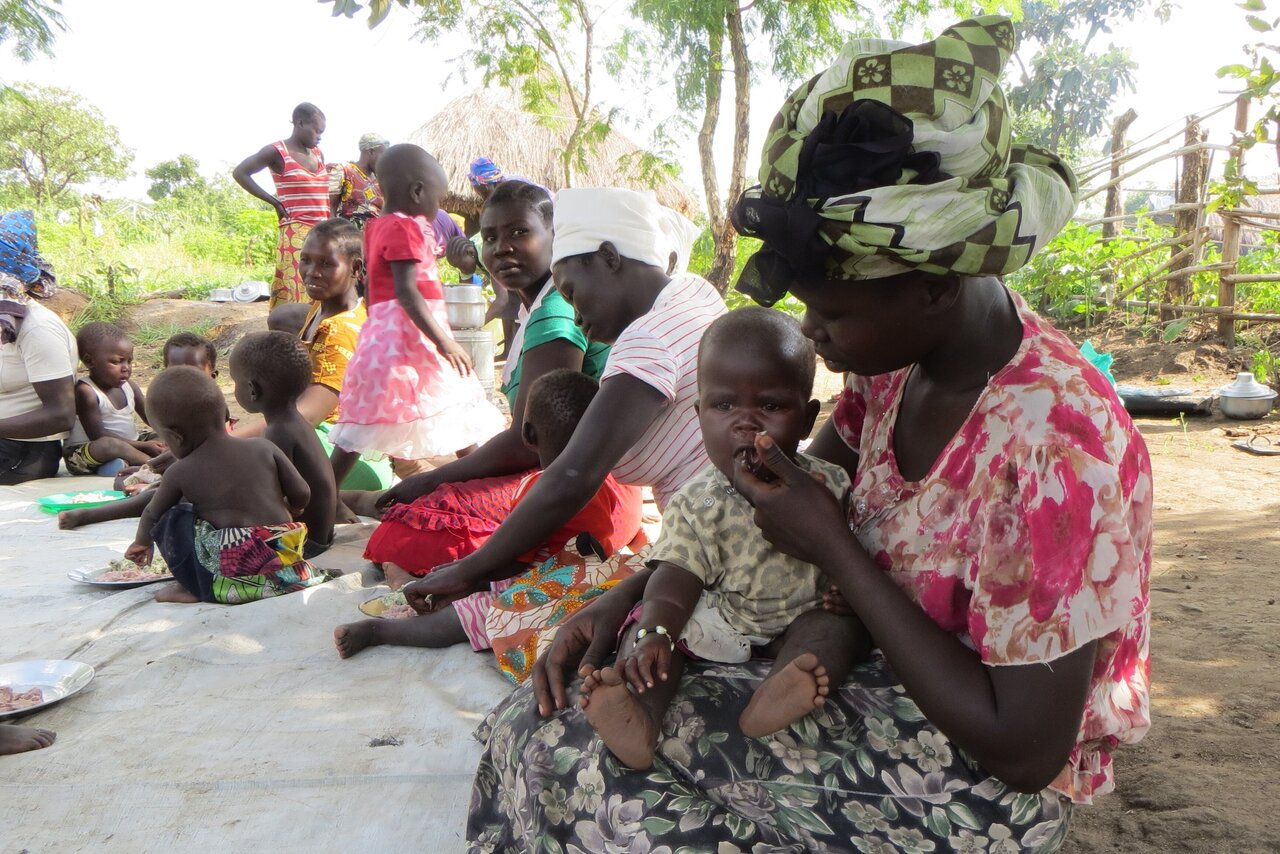Flight: When psychological wounds hardly heal
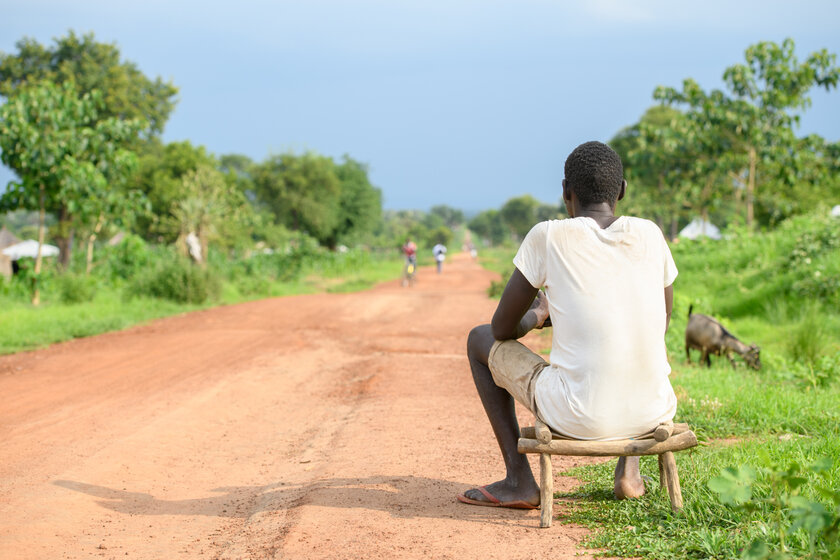
Berlin / Kampala, 18 June 2021
Experienced violence and the resulting flight leave deep scars on many of those affected, which, as in the case of Evans Lomuju in Uganda, can have consequences for many years afterwards. The case of the South Sudanese man makes it clear how important psychological support is in overcoming trauma. Our partner organisation CEFORD is an important link for these measures in refugee settlements.
Evans Lomuju, now 33, fled South Sudan for Uganda in 2016. He is one of around one million refugees who have sought refuge there. Together with two siblings and his mother, Lomuju received a plot of land in the Palorinya refugee settlement from the government, on which he was able to build a home. Lomuju was even able to earn some money. "I would make bricks and sell them to members of the refugee and host community. I earned just enough to buy a few of our basic needs like food and clothes," Lomuju says. His brother also found a job in a health team in the settlement and contributed to the family income. Everything seemed to be back on a more normal track for the family.
However, the situation changed when Lomuju's brother started suffering from mental disorders. "My brother was very normal and healthy but one morning in March 2020, he started uttering uncoordinated speech. He lost his mind, left home and never returned," Lomuju says. The search for him was unsuccessful. The two brothers were very close and Lomuju became sad, stressed and depressed after his brother disappeared. His mother, Sylvia Meling, says that Lomuju's depression worsened over time to the point where he completely isolated himself from others.
My son stopped talking, he would sit alone and not say a word to anyone for days and when the night came, he would have nightmares about the war.
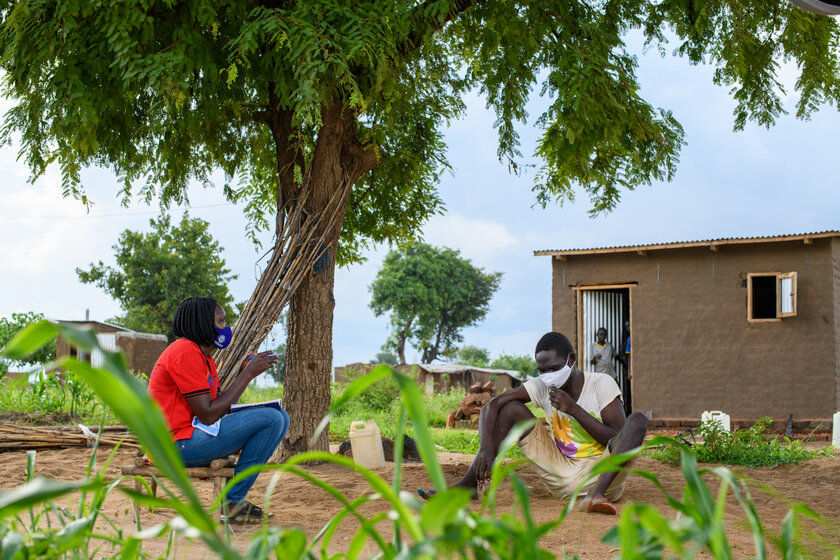
Worried about losing another son, Sylvia Meling turned to Community Empowerment for Rural Development (CEFORD), a Johanniter partner organisation. "We assessed Lomuju’s condition and realised he had symptoms of mental health issues like depression, nightmares, isolation and aggressiveness. We referred him to Idiwa Health Centre III for further professional management," explains Joyce Kareyo, CEFORD psychologist. Lomuju has been receiving treatment there since February 2021. In addition, he attends CEFORD psychosocial therapy sessions and individual counselling with Joyce Kareyo.
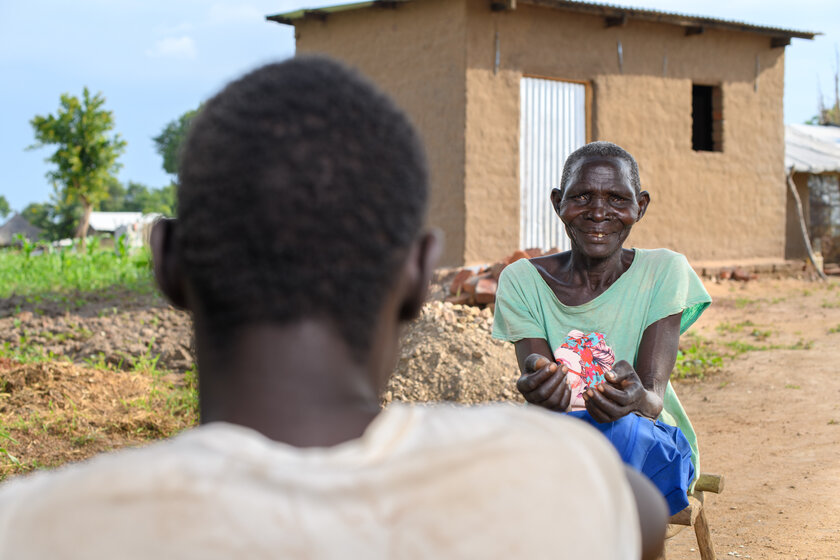
His mental health has improved a little since then, according to his mother. "He would peacefully and regularly interact with us, he cut off his hair, kept himself clean and would also help with the house hold duties like fetching water," Meling explains. She adds that Lomuju also no longer has nightmares. However, her son has recently suffered a relapse. " He is worried about our welfare and feels bad because he cannot work to support us," Meling says.
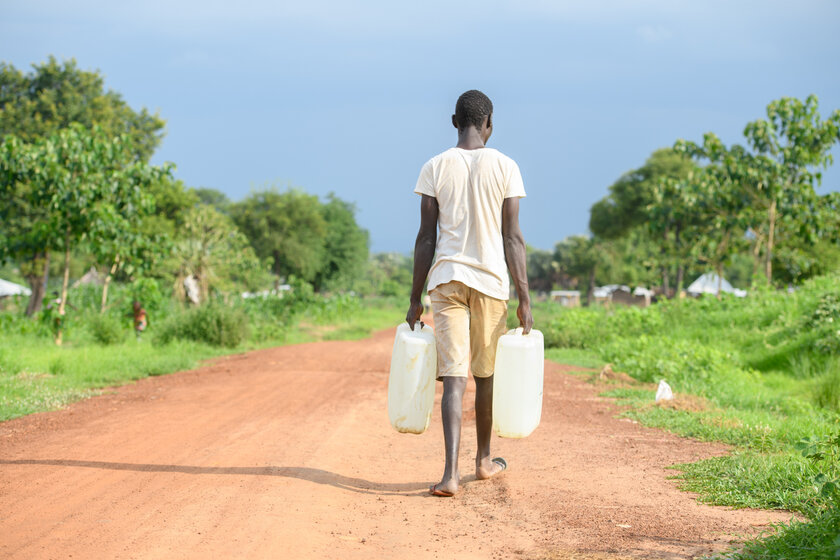
Problems such as poverty, hunger, lack of security and an unregulated life without a job can have a lasting impact on mental health. They reinforce the experiences those affected have brought with them from home. Various studies on mental health among refugees have shown that around one in five people in conflict areas and refugees still have post-traumatic stress disorders or other mental health problems many years after their flight. This is why CEFORD places special emphasis on psychological support in a project that will continue to be implemented jointly in two refugee settlements in Uganda until 2023 with financial support from the German Foreign Office.
UNHCR: 82.4 million people on the run in 2020
The number of people fleeing wars, violence, persecution and human rights violations in 2020 rose to nearly 82.4 million people, according to UNHCR’s latest annual Global Trends report. This is a further four per cent increase on top of the already record-high 79.5 million at the end of 2019. 48 million people were internally displaced (IDPs) within their own countries. 4.1 million were asylum-seekers. These numbers indicate that despite the pandemic and calls for a global ceasefire, conflict continued to chase people from their homes.
Ecuador: Integration as foundation for a better life
We also support refugees in Ecuador. There, together with the Red Cross Ecuador, we launched a project at the end of last year to help Venezuelan migrants and host communities with integration in four cities across the country.
